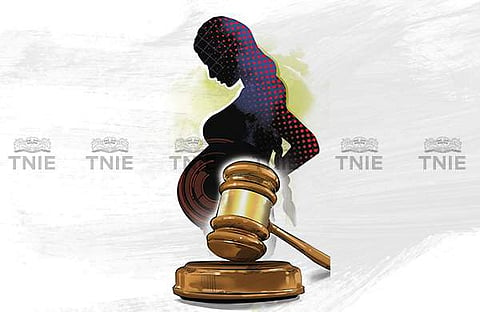

The Supreme Court of India is currently considering listing, in a plea for an urgent hearing, an abortion case. The plea is being made as the Delhi High Court rejected the plaintiff’s request to allow her to terminate her pregnancy, despite recently having crossed the 20-week mark beyond which abortion for unmarried women is not permitted in India. The Delhi HC’s division bench reportedly chided the plaintiff: “Give the child to somebody in adoption. Why are you killing the child?”
These are sentiments expressed by those who hold anti-abortion views (they are mostly not “pro-life”, for their concern for living beings — as corroborated by complementary views on childcare, religious fundamentalism, guns, the environment and so on, depending on where they are — usually ends upon birth) everywhere. Similar statements were widely shared by those who celebrated when the Supreme Court of the United States of America overturned the landmark 1971 Roe vs Wade case last month, almost instantly revoking abortionaccess across some parts of the country, with more to be lost.
Here in India, some feel that reproductive rights are safeguarded in comparison to recent developments in the USA. This is not entirely true. The case presently being considered by the SC of India — one in which every week matters — is an example. Although the plaintiff’s personal reasons for seeking to terminate the pregnancy have been covered in the media, I’ve purposely omitted them because every reason why an individual wants to have an abortion is reason enough. All of them are deserving.
Abortion is legally available in India not because of feminist or human rights principles, but because of eugenics, population control and other factors to do with an overarching system driven by repressive, not just regressive, beliefs. While sex-selective abortion is supposedly illegal, in practice, the space for female foeticide clearly exists, as long as medical practitioners offer the relevant information. In that particular grey area is the need to distinguish between those who are coerced to abort girls and those whose misogyny prevents them from raising girls well.
So much — too much — comes down to the power that medical practitioners have, and the decisions they make about whether a patient’s freedoms and choices are respected or otherwise. A few weeks ago, an uninformative and judgmental Twitter thread by a gynaecologist telling patients that questioning the longstanding shorthand of “Are you married?” is just privileged woke posturing went viral. It went viral because it distressed many people, whose memories of terrible experiences of moral policing, body shaming, misdiagnoses, under-diagnoses and malpractice at the hands of Indian doctors were triggered by the blatant medical gaslighting on display.
Reproductive health is a particularly sensitive area for it is so closely linked with sexuality — which terrifies the conservative. Should the SC of India take up the plea to allow the medical termination that the Delhi HC didn’t, the case will challenge the ban on abortions after 20 weeks if the pregnant person is not married. It could expand access to abortion as a human right, and any expansion of human rights is welcome — especially here, and in all other places where they seem to be shrinking.
Sharanya Manivannan
@ranyamanivannan
The columnist is a writer and illustrator